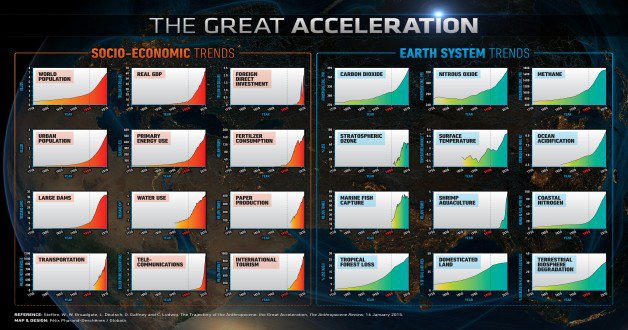Science Magazine: Sustainable Goals from UN under fire
Scientific review labels development targetsas vague, weak or meaningless. Read the full article here.
Scientific review labels development targetsas vague, weak or meaningless. Read the full article here.
The science of building a perfect world from Road to Paris, Science for Smart Policy
Science, technology and medicine are of course integral to the development of economies. Indeed, fundamentally, development is about wider access to precisely these things. But what does science have to tell us about the development process itself, about whether the objectives we choose are achievable, desirable? Is there a ‘more scientific’ approach to the goals we set ourselves?
On 13 November, the 2nd committee of the General Assembly adopted a resolution on "Follow up to the United Nations Decade of Education for Sustainable Development (2005-2014): Global Action Programme on Education for Sustainable Development" (A/C.2/69/L.16) that acknowledges the GAP as a follow-up to the ESD Decade and invites UNESCO to continue its leading role in coordinating its implementation.
From the impact of the industrial revolution to today’s rapid urbanisation and the climate trends that made 2014 the warmest year on record, these charts are a snapshot of our changing world.
They testify to a great acceleration of humanity’s impact on our planet and the “new global context” that leaders operate in. In a single human lifetime, Earth has moved to a quantifiably new state.

Education is in crisis worldwide. Millions of children, especially the most marginalized, are excluded from school. Many millions more attend school, but they do not learn basic reading and math skills. In addition, international funding for education is on the decline. The Investment Case for Education and Equity explains the global education crisis and outlines solutions. It calls for an increase in funding for education and investments that are more equitable and efficient.

The countdown has begun to September’s summit on the sustainable development goals, with national governments now discussing the 17 goals that could transform the world by 2030. Read the full article in the Guardian here.

United Nations University
Institute for the Advanced Study of Sustainability
5–53–70 Jingumae,
Shibuya-ku, Tokyo 150-8925
Japan
Tel: +81 3 5467 1212
Fax: +81 3 3499 2828
